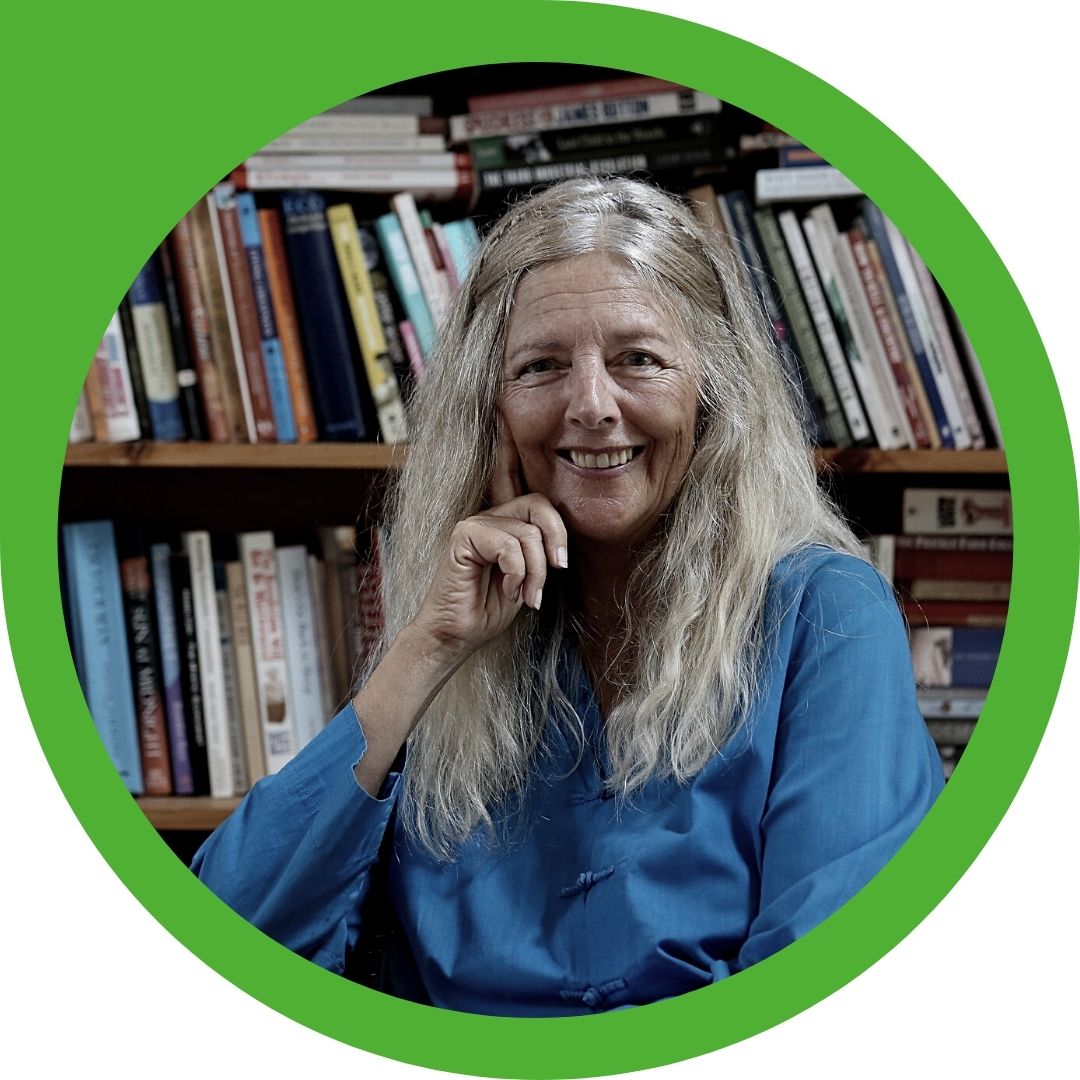

Many talk about climate change, but rare are those who dare to speak about its systemic, deeply-ingrained root cause. Depression, unemployment, racism and climate change indeed seem to be all interconnected through the invisible web of the power of multinational corporations. In this interview, Helena Norberg-Hodge explains to me the history behind it all. She describes with great precision the economical culture that has been destroying our planet and communities for decades, and today threatens our very own survival. Not only that, but she offers an alternative supported by decades of collecting evidence and ground studies, a path which she now calls localization (or decentralization).
Helena Norberg-Hodge is the founder and director of Local Futures, a non-profit organization dedicated to the revitalization of cultural and biological diversity, and the strengthening of local communities and economies worldwide.
In 1986, she was awarded the Right Livelihood Award for “preserving the traditional culture and values of Ladakh against the onslaught of tourism and development.”
In 2011, she produced and co-directed the award-winning documentary film The Economics of Happiness which lays out her arguments against economic globalization and for localization.
And in 2012, she received the Goi Peace Award for “her pioneering work in the localization movement”.
The book “Wisdom for a livable planet” profiled her as one of the eight visionaries changing the world, and The Earth Journal counted her among the world’s ten most interesting environmentalists.
“We have evidence that we can increase productivity from land, in forestry, fishery and farming while simultaneously reducing pollution, restoring biodiversity and meaningful livelihoods. It’s such a WIN-WIN-WIN strategy. In that more human scale, diversified production, closer to the land, you are also rebuilding community interdependence. We are talking about restoring fundamental patterns in how we evolved as humans beings. We evolved in inter-generational community, we evolved deeply connected to the plants and animals on which we depended, and that engendered a type of responsibility and a type of care that is absolutely vital.“
“If we want to survive we, we got to start with that deeper ecological literacy, to really comprehend that the economy is the living Earth. That every single thing we use comes from the Earth and that the Earth is diverse. So this biodiversity requires intimate knowledge and care to help it survive.”
Show notes
- What is LocalFutures?
- What is Globalization and what is Localization?
- How does LocalFutures help with this issue?
- How was the NewKind Festival in Tasmania?
- About the “Repair Portland” project and rebuilding community and localization
- Local Economy
- Agriculture is the Economy
- Eco-literacy (ecological and economical literacy)
- Destroying self-reliance and community
- Symptoms VS Root cause
- How the Corporations narrowed the discussion in the 1970s
- The need for a fundamental different direction
- It all comes from the Earth
- Having an honest accounting
- Why on Earth do we need to make humans obsolete, redundant?
- What we tax, what we subsidies, what we regulate
- Environmentalist haven’t been paying attention to what’s happening on a global level
- Left and right have systematically gone in the same economic directions
- A new economic system
- Having a holistic, systemic perspective
- Community initiatives
- An insight into a subsidized, manipulated economy
- The myth of Constant Growth
- Education about the real world
- Globalization and The Fabric of Unhappiness
- Corporate hypocrisy and blaming people
- Growing food for money
- Localization
- Technology
- It’s not about good guy, bad guy
Many talk about climate change, but rare are those who dare to speak about its systemic, deeply-ingrained root cause. Depression, unemployment, racism and climate change indeed seem to be all interconnected through the invisible web of the power of multinational corporations. In this interview, Helena Norberg-Hodge explains to me the history behind it all. She describes with great precision the economical culture that has been destroying our planet and communities for decades, and today threatens our very own survival. Not only that, but she offers an alternative supported by decades of collecting evidence and ground studies, a path which she now calls localization (or decentralization).
Helena Norberg-Hodge is the founder and director of Local Futures, a non-profit organization dedicated to the revitalization of cultural and biological diversity, and the strengthening of local communities and economies worldwide.
In 1986, she was awarded the Right Livelihood Award for “preserving the traditional culture and values of Ladakh against the onslaught of tourism and development.”
In 2011, she produced and co-directed the award-winning documentary film The Economics of Happiness which lays out her arguments against economic globalization and for localization.
And in 2012, she received the Goi Peace Award for “her pioneering work in the localization movement”.
The book “Wisdom for a livable planet” profiled her as one of the eight visionaries changing the world, and The Earth Journal counted her among the world’s ten most interesting environmentalists.
“We have evidence that we can increase productivity from land, in forestry, fishery and farming while simultaneously reducing pollution, restoring biodiversity and meaningful livelihoods. It’s such a WIN-WIN-WIN strategy. In that more human scale, diversified production, closer to the land, you are also rebuilding community interdependence. We are talking about restoring fundamental patterns in how we evolved as humans beings. We evolved in inter-generational community, we evolved deeply connected to the plants and animals on which we depended, and that engendered a type of responsibility and a type of care that is absolutely vital.“
“If we want to survive we, we got to start with that deeper ecological literacy, to really comprehend that the economy is the living Earth. That every single thing we use comes from the Earth and that the Earth is diverse. So this biodiversity requires intimate knowledge and care to help it survive.”
Show notes
- What is LocalFutures?
- What is Globalization and what is Localization?
- How does LocalFutures help with this issue?
- How was the NewKind Festival in Tasmania?
- About the “Repair Portland” project and rebuilding community and localization
- Local Economy
- Agriculture is the Economy
- Eco-literacy (ecological and economical literacy)
- Destroying self-reliance and community
- Symptoms VS Root cause
- How the Corporations narrowed the discussion in the 1970s
- The need for a fundamental different direction
- It all comes from the Earth
- Having an honest accounting
- Why on Earth do we need to make humans obsolete, redundant?
- What we tax, what we subsidies, what we regulate
- Environmentalist haven’t been paying attention to what’s happening on a global level
- Left and right have systematically gone in the same economic directions
- A new economic system
- Having a holistic, systemic perspective
- Community initiatives
- An insight into a subsidized, manipulated economy
- The myth of Constant Growth
- Education about the real world
- Globalization and The Fabric of Unhappiness
- Corporate hypocrisy and blaming people
- Growing food for money
- Localization
- Technology
- It’s not about good guy, bad guy

